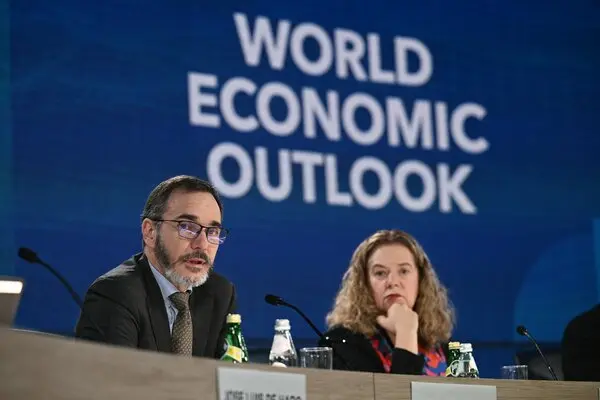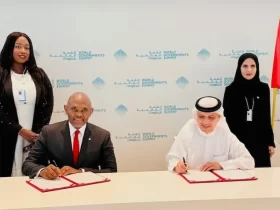The International Monetary Fund (IMF) has revised Nigeria’s economic growth projection for 2024, anticipating a slowdown due to several challenges. According to the latest World Economic Outlook (WEO) report, Nigeria’s economy is now expected to grow by 2.9% in 2024, the same rate recorded in 2023. This figure represents a 0.2% drop from the IMF’s July projection and a 0.4% decrease from its April forecast.
Reasons for the Downward Revision
The IMF attributed the lowered forecast to weaker-than-expected activity in the first half of 2023. Jean-Marc Natal, Deputy Chief of the IMF’s Research Department, highlighted key challenges such as disruptions in agriculture caused by flooding and security and maintenance issues that have impacted oil production.
“We revised growth for Nigeria in 2024 down by 0.2%. Issues in agriculture related to flooding and disruptions in oil production, tied to security and maintenance, have played a significant role in the revision,” Natal said during a press conference at the ongoing IMF/World Bank annual meetings in Washington, D.C.
A Brighter Outlook for 2025
Despite the slower growth projection for 2024, the IMF forecasts that Nigeria’s economy will see a recovery in 2025, with a projected growth rate of 3.2%. This marks a 0.2% increase from previous estimates in July and April.
Comparison with World Bank Projections
The IMF’s projections are more conservative compared to the World Bank’s outlook. In the latest edition of Africa’s Pulse, the World Bank projected that Nigeria’s GDP will grow by 3.3% in 2024 and accelerate to 3.6% in 2025–2026, as macroeconomic and fiscal reforms start to yield results.
The World Bank report noted that inflation peaked at 34.2% in June 2024, but gradually decreased to 32.2% by August. The IMF expects inflation in Nigeria to drop from an average of 32.55% in 2024 to 25% by 2025.
IMF Recommendations for Managing Inflation
During the press conference, IMF officials urged countries facing high inflation, including Nigeria, to adopt tighter monetary policies to stabilize their economies. Pierre-Olivier Gourinchas, the IMF’s Economic Counsellor and Director of Research, emphasized the importance of balancing monetary and fiscal policies to combat inflation and manage debt.
“In countries where inflation is very high, we recommend a tight monetary policy stance. Fiscal consolidation can help when possible, though this is complicated by trade-offs many nations face,” Gourinchas stated.
Balancing Fiscal Consolidation and Growth
While fiscal consolidation is important, Gourinchas warned against excessive austerity measures that could hinder economic recovery. He stressed the need for governments to protect essential spending, particularly in areas such as healthcare, public investments, and services that promote long-term growth.
“If you try to do too much too quickly, you might have an adverse impact on growth. It’s crucial to protect spending that is good for growth,” he added.
Nigeria’s Economic Performance in 2023
Nigeria’s economy grew by 2.98% in the first quarter of 2023 and 3.19% in the second quarter, despite facing challenges such as surging inflation and further depreciation of the naira. The IMF’s revised forecast for 2024 reflects the ongoing challenges in key sectors like agriculture and oil, which are critical to Nigeria’s economic performance.
Source: Nairametrics


















